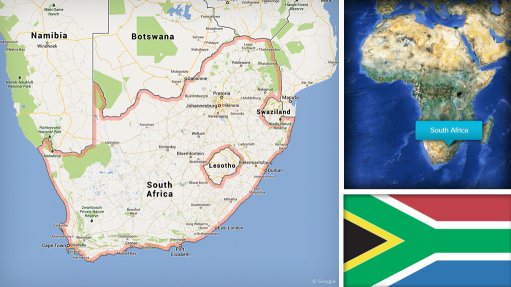High level of available food supply in South Africa wasted, CSIR study shows
The findings of a recently released study from scientific and technology research, development and implementation organisation the Council for Scientific and Industrial Research (CSIR) shows that an estimated 10.3-million tonnes a year of edible food, earmarked for human consumption in South Africa, does not reach the human stomach.
That is about 34% of local food production; however, because South Africa is a net exporter of food, the losses and waste is equivalent to 45% of the available food supply in the country.
These results point to high levels of inefficiency in the food value chain in South Africa at a time when there is increasing food insecurity in South Africa, the CSIR notes.
“The updated figures are in the same order of magnitude as the previous 2013 estimates, but the distribution of the losses and waste across the value chain have changed,” highlights CSIR principal researcher Professor Suzan Oelofse.
The majority of South Africa’s food losses and waste (68%) occurs in the early stages of production, with 19% occurring during post-harvest handling and storage, and 49% during processing and packaging.
Food waste at the consumption stage is 18%, more than three times higher than previous estimates.
In terms of commodity groups, cereals contribute 50% of the overall losses and waste, followed by fruit and vegetables at 19%, milk at 14% and meat at 9%.
The new CSIR study, aimed at increasing reliable, scientific data and information on food losses and waste in South Africa, was funded by the Department of Science and Innovation (DSI) under the Waste Research, Development and Innovation Roadmap.
The project builds on the CSIR’s research on food waste undertaken between 2010 and 2015.
In response, the CSIR has released a Food Waste Prevention and Management Guideline for South Africa to raise awareness of food wastage throughout the supply chain, but specifically at consumer level to address food wastage before it reaches the same levels as in the developed world.
The guideline includes information on the drivers and possible actions that can be taken to prevent and manage food waste throughout the food supply chain. It provides practical tips on how farmers, households and distributors can reduce food losses and waste.
Comments
Announcements
What's On
Subscribe to improve your user experience...
Option 1 (equivalent of R125 a month):
Receive a weekly copy of Creamer Media's Engineering News & Mining Weekly magazine
(print copy for those in South Africa and e-magazine for those outside of South Africa)
Receive daily email newsletters
Access to full search results
Access archive of magazine back copies
Access to Projects in Progress
Access to ONE Research Report of your choice in PDF format
Option 2 (equivalent of R375 a month):
All benefits from Option 1
PLUS
Access to Creamer Media's Research Channel Africa for ALL Research Reports, in PDF format, on various industrial and mining sectors
including Electricity; Water; Energy Transition; Hydrogen; Roads, Rail and Ports; Coal; Gold; Platinum; Battery Metals; etc.
Already a subscriber?
Forgotten your password?
Receive weekly copy of Creamer Media's Engineering News & Mining Weekly magazine (print copy for those in South Africa and e-magazine for those outside of South Africa)
➕
Recieve daily email newsletters
➕
Access to full search results
➕
Access archive of magazine back copies
➕
Access to Projects in Progress
➕
Access to ONE Research Report of your choice in PDF format
RESEARCH CHANNEL AFRICA
R4500 (equivalent of R375 a month)
SUBSCRIBEAll benefits from Option 1
➕
Access to Creamer Media's Research Channel Africa for ALL Research Reports on various industrial and mining sectors, in PDF format, including on:
Electricity
➕
Water
➕
Energy Transition
➕
Hydrogen
➕
Roads, Rail and Ports
➕
Coal
➕
Gold
➕
Platinum
➕
Battery Metals
➕
etc.
Receive all benefits from Option 1 or Option 2 delivered to numerous people at your company
➕
Multiple User names and Passwords for simultaneous log-ins
➕
Intranet integration access to all in your organisation


















